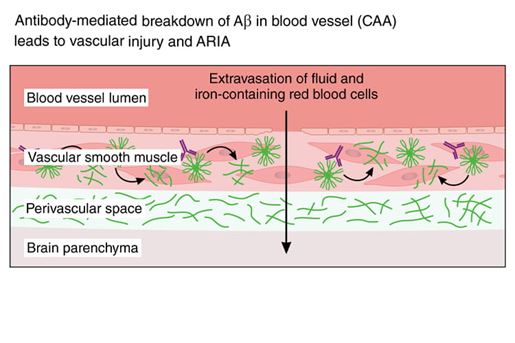Vascular Neurology Considerations for Antiamyloid Immunotherapy
Published: December 11, 2024

- Anti-amyloid immunotherapies represent a breakthrough for early-stage Alzheimer’s Disease (AD), but they pose a significant risk of Amyloid-Related Imaging Abnormalities (ARIA), which can range from mild to life-threatening.
- Healthcare professionals face critical decisions regarding patient selection, particularly for individuals with cerebrovascular conditions, on anticoagulants, or those who may require thrombolytics, as these factors increase the risk of ARIA.
- Current FDA guidelines focus on managing ARIA and advising caution with concurrent antithrombotic treatments. More real-world data and improved risk-prediction tools are essential to refine treatment protocols.
Video: Vascular Neurology Considerations for Anti-Amyloid Immunotherapy
Authors Mark Fisher, MD and Steve Greenberg, MD announce the publication of the science advisory in the journal STROKE and discuss predictors of ARIA, the use of antithrombotic and thrombolytic medications in patients receiving anti-amyloid therapy, and suggested treatment approaches.
Supporting Materials
- Commentary: The multifaceted role of Vascular Neurologists in the care of candidates for anti-amyloid immunotherapy by Alejandro A. Rabinstein, MD, FAHA; Jonathan Graff-Radford, MD
- Top Things to Know: Vascular Neurology Considerations for Anti-amyloid Immunotherapy
- Slide Set: Vascular Neurology Considerations for Anti-amyloid Immunotherapy (PPTX)
Recommended Reading
- 2022 Guideline for the Management of Patients With Spontaneous Intracerebral Hemorrhage
- Guidelines for the Early Management of Patients With Acute Ischemic Stroke: 2019 Update to the 2018 Guidelines for the Early Management of Acute Ischemic Stroke
- Cognitive Impairment After Ischemic and Hemorrhagic Stroke
- The Neurovasculome: Key Roles in Brain Health and Cognitive Impairment